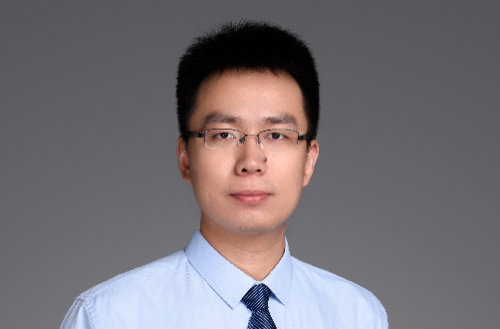师资

个人简介
唐浩博士,南方科技大学生物医学工程系研究助理教授。研究兴趣包括纳米生物医学、药物递送及生物医用高分子材料等。2013年至2018年就读于北京化工大学,并获工学博士学位,2018年至2020年在南方科技大学/东南大学从事博士后研究,出站后在南方科技大学生物医学工程系任高级研究学者。获“深圳市后备级高层次人才”等荣誉;迄今已在Angew. Chem. Int. Ed,Adv. Drug Delivery Rev.,Biomacromolecules,Chinese J. Polym. Sci.等期刊发表学术论文10余篇,总他引100多次;主持国家自然科学基金青年项目、中国博士后科学基金面上项目各1项。
教育背景
2013年9月-2018年6月 北京化工大学 化学工程与技术 博士
2009年9月-2013年6月 西南交通大学 材料科学与工程 学士
工作经历
2021年9月至今 南方科技大学 研究助理教授
2020年12月-2021年9月 南方科技大学 高级研究学者
2018年12月-2020年11月 南方科技大学/东南大学 博士后
代表性论文
[14] H. Tang, Q. Li, W. Yan, X. Jiang*, Reversing the Chirality of Surface Ligands Can Improve the Biosafety and Pharmacokinetics of Cationic Gold Nanoclusters, Angew. Chem. Int. Ed. 2021, 60, 13829.
[13] H. Tang, X. Zhao, X. Jiang*, Synthetic Multi-layer Nanoparticles for CRISPR-Cas9 Genome Editing, Adv. Drug Delivery Rev. 2021, 168, 55-78.
[12] M. Chen, R. Dong, J. Zhang, H. Tang, Q. Li, H. Shao*, X. Jiang*, Nanoscale Metal–Organic Frameworks That are Both Fluorescent and Hollow for Self-Indicating Drug Delivery, ACS Appl. Mater. Interfaces 2021, 13(16), 18554–18562.
[11] X. Li, M. Zha, Y. Li, J. Ni, T. Min, T. Kang, G. Yang, H. Tang, K. Li*, X. Jiang*, Sub-10 nm Aggregation-Induced Emission Quantum Dots Assembled by Microfluidics for Enhanced Tumor-Targeting and Reduced Retention in the Liver, Angew. Chem. Int. Ed. 2020, 59, 21899.
[10] X. Zhao, J. Jia, R. Dong, J. Deng, H. Tang, F. Hu, S. Liu*, X. Jiang*, Bimetallic Nanoparticles against Multi-drug Resistant Bacteria, Chem. Commun. 2020, 56, 10918-1092.
[9] Y. Yang, Y. Chen, H. Tang, N. Zong, X. Jiang*, Microfluidics for Biomedical Analysis, Small Methods 2020, 4, 1900451.
[8] H. Tang, J. Zhang, J. Tang, Y. Shen, W. Guo, M. Zhou, R. Wang, N. Jiang, Z. Gan*, Q. Yu*, Tumor Specific and Renal Excretable Star-like Triblock Polymer–Doxorubicin Conjugates for Safe and Efficient Anticancer Therapy, Biomacromolecules 2018, 19(7), 2849-2862.
[7] H. Tang, J. Tang, Y. Shen, W. Guo, M. Zhou, R. Wang, N. Jiang, Z. Gan*, Q. Yu*, Comb-like Poly (N-(2-hydroxypropyl) methacrylamide) Doxorubicin Conjugates: The Influence of Polymer Architecture and Composition on the Biological Properties, Chinese J. Polym. Sci. 2018, 36(11), 1225–1238.
[6] J. Zhang, H. Tang, Y. Shen, Q. Yu*, Z. Gan*, Shell-Sheddable Poly (N-2-hydroxypropyl methacrylamide) Polymeric Micelles for Dual-Sensitive Release of Doxorubicin, Macromol. Rapid Comm. 2018, 1800139.
[5] J. Liu, H. Tang, P. Mi*, Y. Wei*, Current Status and Prospect of Cancer Nanomedicine in Clinical Translation, Sci. Technol. Rev. 2018, 36 (22), 118-126.
[4] T. Shen, X. Xu, L. Guo, H. Tang, T. Diao, Z. Gan, G. Zhang*, Q. Yu*, Efficient Tumor Accumulation, Penetration and Tumor Growth Inhibition Achieved by Polymer Therapeutics: The Effect of Polymer Architectures, Biomacromolecules 2017, 18(1), 217-230.
[3] X. Yan, Q. Yu*, L. Guo, W. Guo, S. Guan, H. Tang, S. Lin, Z. Gan*, Positively Charged Combinatory Drug Delivery Systems against Multi-Drug-Resistant Breast Cancer: Beyond the Drug Combination, ACS Appl. Mater. Interfaces 2017, 9(8), 6804-6815.
[2] N. Du, W. Guo, Q. Yu*, S. Guan, L. Guo, T. Shen, H. Tang, Z. Gan*, Poly (d, l-lactic acid)-block-poly (N-(2-hydroxypropyl) methacrylamide) Nanoparticles for Overcoming Accelerated Blood Clearance and Achieving Efficient Anti-tumor Therapy, Polym. Chem. 2016, 7(36), 5719-5729.
[1] Q. Yu, Z. Wei, J. Shi, S. Guan, N. Du, T. Shen, H. Tang, B. Jia, F. Wang, Z. Gan*, Polymer–Doxorubicin Conjugate Micelles Based on Poly (ethylene glycol) and Poly (N-(2-hydroxypropyl) methacrylamide): Effect of Negative Charge and Molecular Weight on Biodistribution and Blood Clearance, Biomacromolecules 2015, 16(9), 2645-2655.
